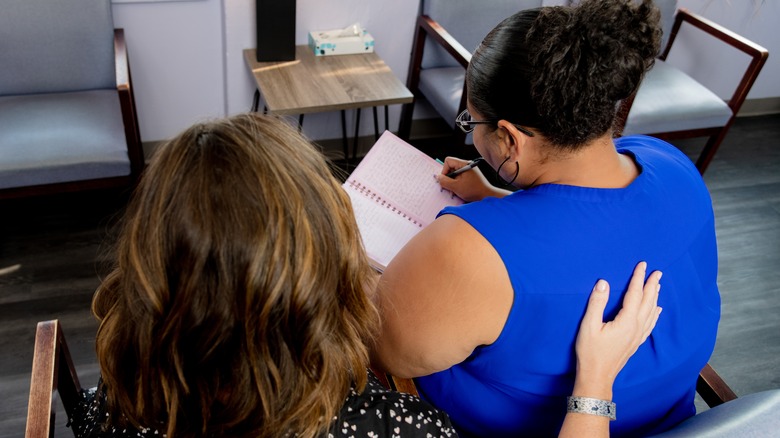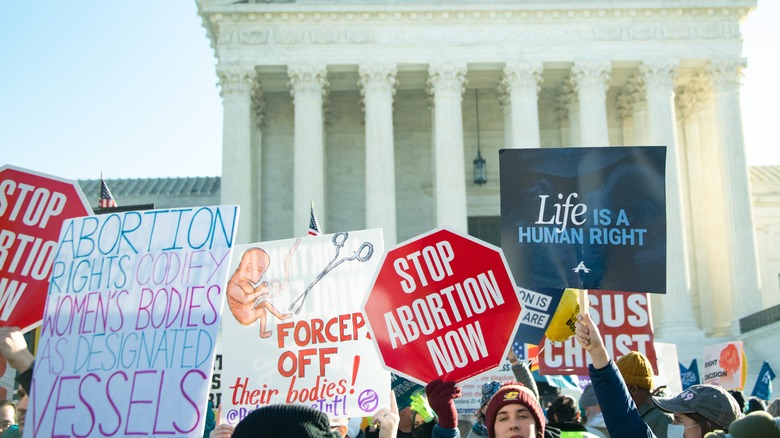O'Neill Institute's Rebecca Reingold On How Overturning Roe V. Wade Affects More Than Abortion Access - Exclusive
The recent decision to overturn Roe v. Wade has caused a divide among Americans. While some people agree with the decision, others have voiced their concerns over revoking a woman's right to have an abortion. Whatever your opinion on the topic may be, the impact of the new law stretches much further than solely abortion access. For one, women who have had the misfortune of experiencing a miscarriage may not have as many resources available to them now.
"Abortion and miscarriage are often clinically indistinguishable," Rebecca Reingold — the Associate Director of the Health and Human Rights Initiative based at Georgetown Law — said during an exclusive interview with Health Digest. "Many women require treatments to avoid miscarriage complications that threaten their health or lives, which can include treatments or procedures used for abortion care."
Because these treatments are expected to soon become illegal in nearly half of the U.S., medical professionals may feel uncertain about whether or not they can help specific women in need. "Even where there are exceptions for risk to the pregnant woman's health, health professionals may hesitate to provide abortions under those circumstances because they lack clarity about what exactly 'lifesaving' means and do not want to risk prosecution," Reingold explained.
In fact, there is still much confusion over many reproductive rights — because the right to use contraception is also deeply rooted in the verdict of Roe v. Wade.
The right to contraceptives could be discussed in the Supreme Court soon
Now that the Supreme Court has made a new verdict regarding Roe v. Wade, many other American rights could soon be at stake. During the recent overruling, Justice Thomas stated that he would like the Supreme Court to re-examine giving Americans the right to use contraception.
"Both the right to abortion and the right to contraception are grounded in the same constitutional right, namely the right to privacy," Rebecca Reingold told Health Digest, adding, "It is also possible that the Court's attempt to distinguish the right to abortion from other privacy rights, citing the involvement of 'potential life,' will not hold for the right to contraception."
If this is reexamined and becomes overruled in the same way as Roe v. Wade, each state would then hold the decision on whether or not to give its residents access to contraceptives. In the same way that some states have made abortions illegal, some may make birth control illegal, too. "Some states may decide to ban all or certain forms of contraception, like emergency contraception or IUDs, and criminalize health professionals who provide patients with these services," Reingold explained.
The decision to overrule Roe v. Wade has far-reaching effects when it comes to reproduction. You can learn more about what the Supreme Court's decision to overturn Roe v. Wade means for sexual and reproductive health at the O'Neill Institute's website.


